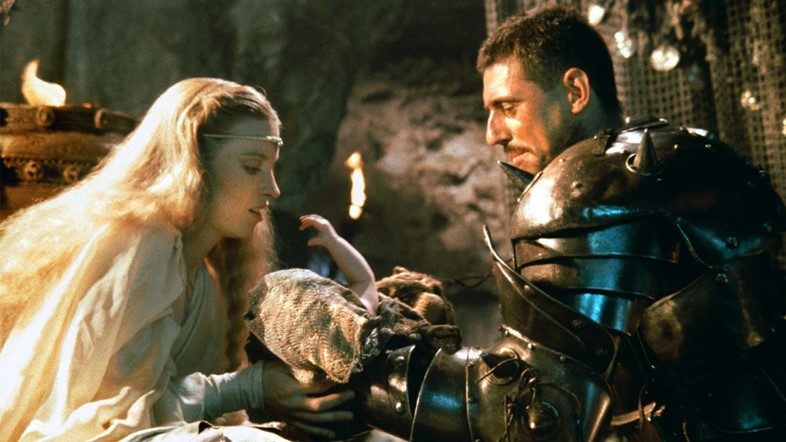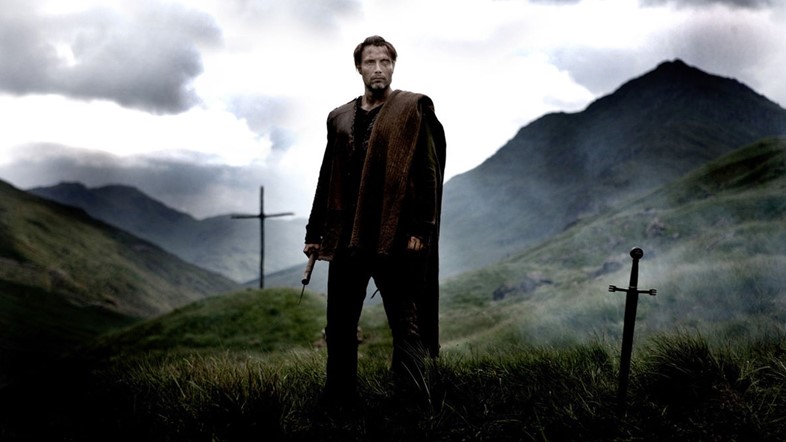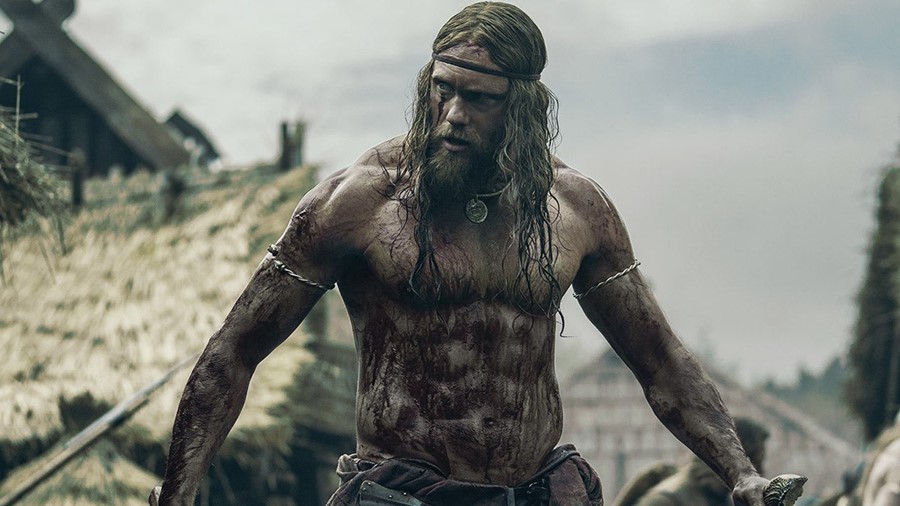As Robert Eggers’ new Viking saga sets forth in cinemas, here’s our guide to the best arthouse fantasy epics
Ye Gods! This month Alexander Skarsgård, with mud-streaked abs you could grate your Grana Padano on, is out for revenge in The Northman. Robert Eggers’ new film reportedly cost a whopping $90m to make, meaning its backers need a Gladiator-sized hit on their hands to turn a profit – and Eggers, frankly, sounds like he’s bricking it. “If this isn’t Gladiator or Braveheart, we’re fucked,” he said in one recent interview. “And the thing is: it isn’t.”
Still, the fact this film exists at all is a something of a miracle. With his first two features, The Witch and The Lighthouse, Eggers proved himself a dab hand at poetically charged, period-authentic dialogue and art direction, showcasing his ability to scratch an itch other period filmmakers simply can’t reach. He’s described The Northman, a high-minded work of swords-and-sorcery lifted from Norse mythology, as “Andrei Rublev meets Conan the Barbarian”. But who is Andrei Rublev, anyway? (Jks, film Twitter!) And would he even want to meet with Conan? Forget elevated horror: here’s your introduction to elevated fantasy, the films that bring philosophical rigour to the genre’s fabled fondness for “tits and dragons”.
Die Nibelungen (Fritz Lang, 1926)
In his introduction to the film at its London premiere last week, Robert Eggers confessed to having no interest in Norse mythology until he began work on The Northman, partly on account of its adoption by far-right loons for nationalist ends. One hundred years ago, Fritz Lang took his own cues from German folklore for his two-part epic Die Nibelungen, an interesting example of how retellings of national myths can get you into hot water politically. The films were written with Thea von Harbou, Lang’s wife at the time and a future member of the National Socialist party, and feature a comically aryan hero alongside some crudely sketched ‘ethnic’ types. Some scholars have claimed the films’ monumental style influenced Nazi iconography, claims which Lang challenged by arguing that he simply wanted to reflect Germany’s longing for new national myths after the devastation of the first world war. As for the rest, Lang’s films make us wait an awful long time for the swordplay – four hours, to be precise – but it’s worth it for the for the A+ set design, expressionist weirding techniques and a pre-CGI dragon that’d do Ray Harryhausen proud.

Excalibur (John Boorman, 1981)
The dragon is a metaphor! Is just one of the plot twists in Excalibur, John Boorman’s R-rated take on Arthurian legend, to have Game of Thrones fans crying into their subreddits. The cast might sound like they’re auditioning for Brian Blessed: The Musical!, but don’t be deceived: this is an authentically batshit bit of mythmaking from the Deliverance director, shot through with strange, hallucinatory magic and a lyrical subtext about the passing of pagan beliefs in early Christian Britain. Boorman even shot his own daughter, Katrine, in a supernatural rape scene, the mad bastard.
Flesh and Blood (Paul Verhoeven, 1985)
Before Benedetta, Paul Verhoeven gave us another tale of sex, money, religion and murder set in Europe’s distant past with Flesh and Blood, the film that began the Dutch master’s fabled run of Hollywood films including Basic Instinct and Robocop. It’s a gnarly, nasty piece of work that brought Verhoeven into conflict with his studio and leading man, Rutger Hauer, who wanted to play his character, Martin, as a heroic figure. But the director, wanting a morally ambiguous lead who reflected his view that the middle ages were a “stinking time to live”, prevailed. It’s undeniably thrilling stuff, and the ‘romantic’ scene where Jennifer Jason-Leigh seduces a prince in a meadow as a hanged man with his nads ripped off sways in the breeze is peak Verhoeven.

Valhalla Rising (Nicolas Winding Refn, 2009)
One newspaper called Nic Winding Refn’s savage Scandi epic “unspeakably self-important”, which is manifestly true of all the Danish director’s films – still, you have to admit the lad’s got style. This unspeakably grim vision of the new world as hell features Mads Mikkelsen as a visionary mute serf with one eye who mistakenly rows to America after a hellish red fog descends on a journey to the Holy Land. After that, not much happens, really, apart from the odd disembowelling courtesy of Mads. But hey, it’s a mood.
The Green Knight (David Lowery, 2021)
Pity the fools who came straight to The Green Knight from The Witcher or some such fantasy #content courtesy of the algorithm, only to be confronted with two hours of Dev Patel wandering about with a confused look on his face. This recent entry to the elevated fantasy genre from David Lowery, an old A24 stablemate of Eggers’, is slow, deliberately opaque, and light on animating purpose. It’s also kind of wonderful, a disarmingly strange exploration of self and premonition of climate catastrophe featuring the great Ralph Ineson as our titular mythical knight.
